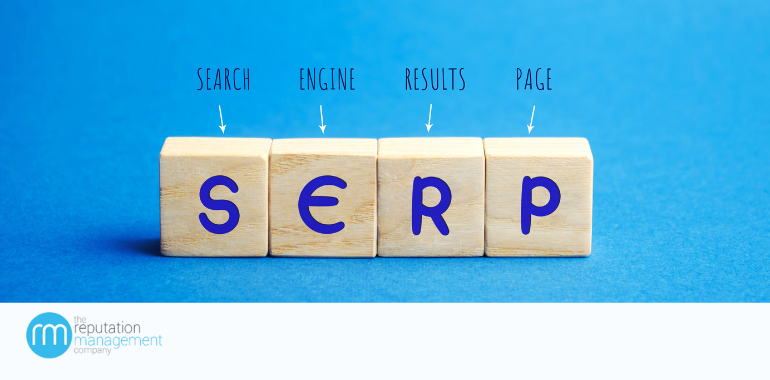Is SEO A DIY Project, Or Do You Leave It To The Experts?
Many individuals wonder if they can conduct SEO on their own. Anyone can learn how to conduct SEO for their business with little research and practice. You can certainly perform your search engine optimization.
Did you know that 93% of consumers use the internet to locate a local business? Every time someone looks for XYZ near me, it is a local search.
However, simply having a website does not guarantee that you will be viewed, as most people only look at the search results that appear on the first page.
Half of the people don’t look past the first three listings. Search engine optimization is a great technique to get your site noticed.
If you serve customers outside of your immediate region, SEO is as important because almost 9 out of 10 buyers check online reviews before making a purchase.
Potential clients will notice your reviews and other information if you optimize your website. Do you want to learn everything there is to know about SEO?
Before we tell you how it works and how to accomplish it, let’s first define SEO, and then we’ll go into how SEO works.
What Is SEO?
SEO is an abbreviation for search engine optimization. Search engine optimization is the process of improving your page’s ranking for your website or business on Google.
The primary difference between SEO and traditional advertising is that search engine optimization entails “organic” ranking, which implies you do not pay to appear in that spot.
The vast majority of internet searches begin with a search engine like Google. Google is the starting point for 75% of those queries.
To understand how to rank your content higher in search engines, you must first grasp how search works.
The end objective is to grasp the intricacies of search to optimize your content to rank higher on Google and get more people to read your posts.
On-Page SEO and Off-Page SEO Are The Two Most Important Aspects Of Search Engine Optimization
When it comes to overall search engine optimization, two approaches are equally important: on-page SEO and off-page SEO.
On-page SEO is when you create content to boost your rankings. This includes, among other things, inserting keywords into your pages and content, generating high-quality material regularly, and ensuring that your metatags and titles are keyword-rich and well-written.
Off-page SEO refers to optimization outside your website, such as acquiring backlinks. This portion of the equation develops relationships and produces content people want to share. Though it requires a significant effort, it is critical to SEO success.
SEO Marketing Fundamentals
It’s now time to learn about SEO marketing. Understanding it is one thing, but it takes a significant amount of activity and time.
You cannot modify this and expect to see benefits the next day. SEO measures are taken regularly with the objective of long-term success in mind.
Content
“Content is king,” Bill Gates made this forecast in 1996, and it still holds today. When Google users find the best result for their needs, they are ecstatic.
Google continuously strives to give the best possible experience by sending you the finest information it can discover.
This means that the most important thing you can do to improve your search engine optimization is create amazing content. It would be best if you still put forth a lot of effort. SEO is no different than any other skill: exceptional results need a lot of work.
Just like the finest marketing in the world will not help you sell a terrible product, highly sophisticated search engine optimization will be ineffective if you do not have excellent content.
Determine The Issues You Resolve For Consumers
Some SEO professionals believe that keyword research is the initial stage in search engine optimization, while others disagree.
While keywords are important, you must also understand why your target audience is searching the web for a company like yours in the first place.
You want to know what they’re looking for. The logic is straightforward: persons with various search intents will use different terms.
Search intentions are classified into three types: informative, transactional, and navigational, and their goal may be as follows:
- Informational. They are curious about something.
- Transactional. They want to purchase something.
- Navigational. They want to go somewhere but don’t know the way there.
Remember that the objective of a search engine is to deliver the most relevant sites to a user’s search. The more your material matches a user’s intent, the higher your search rankings may be.
Knowing your prospects’ “why” can help you decide what kind of material to offer on your website. Begin by brainstorming your customers’ search intent at each stage of the purchasing cycle.
When you understand your audience’s “why,” you’ll know what keywords to target in the next step: keyword research.
Quality
It used to be that uploading a piece of content with several keywords was the norm. If you were producing high-quality material that genuinely answered someone’s problem, you were a standout, making it simple to rank.
Content is considerably better nowadays, and many internet businesses have blogs that they utilize to add value to their site and rank higher on Google.
Creating amazing content is difficult, but the good news is that you don’t necessarily have to start from scratch. You may build on the work of others but add additional value and make your piece of material more in-depth.
The bottom line is that your material must solve an issue or give a solution to whatever drew the reader to your article in the first place.
If it doesn’t, they’ll swiftly leave your website, signaling to Google that your piece of content isn’t helping anyone’s problem.
Conduct Keyword Research To Find Target Keywords
Look for terms and phrases your target audience enters into search engines while investigating keywords Keyword research takes time, but it is definitely worth the effort. The target keywords you discover will guide your content strategy, significantly influencing how your pages rank on search engine results pages (SERPs).
Keyword research takes time, but it is definitely worth the effort. The target keywords you discover will guide your content strategy, significantly influencing how your pages rank on search engine results pages (SERPs).
You may speed up the process by using free keyword research tools, such as Google Keyword Planner, to gain insights.
If you don’t have a few hours to spare, why not hire an independent search engine optimization keyword researcher to perform the task for you?
Some of these specialists have access to more powerful keyword research tools, allowing you to obtain a high-quality list without paying for new tools or spending time learning how to use them.
Perform An SEO Audit
Conducting a search engine optimization audit is simple, yet most small firms fail to do so. An SEO audit assesses how well your website ranks in search engine results pages and recommends areas that you may improve to help your site rank higher.
Many changes may be as easy as repairing broken links, enhancing page names, and including keywords in meta descriptions.
Several SEO audit tools are available that will examine every page on your site and provide recommendations for improvement.
These technologies are effective, but subscriptions may be prohibitively expensive for small businesses. Although free search engine optimization tools aren’t as powerful, they’re still an excellent approach to get the job done.
Are Keywords That Important?
Keyword research determines how you label your website or define your business on the internet.
Keywords even influence how you generate links, from the strategies you use to how you intend to apply them. Another typical mistake is that individuals stop.
Perhaps they will remodel their website or launch a new marketing campaign. They do it for a week or two, then cease updating their pages.
They believe that keyword research is a one-time event. In actuality, it’s the inverse. The most effective SEOs are always conducting keyword research.
Keyword research is done for various objectives, the two most important of which are to rank on Google and develop relevant content.
Keyword selection is more than just running through your keyword research tool and selecting every term on the list. It would help if you comprehended the keyword’s intent and its competition.
Once you’ve chosen the proper term, it should be contextually relevant to what you do and a better fit with what you’re attempting to market. What happens next?
You launch a keyword tool to generate some relevant keyword suggestions. Naturally, you go toward the ones with the most searches, but here’s what you’re overlooking: Your ability to rank for a keyword is frequently determined by the level of competition you face.
The rivalry is strong. Sites are now ranking on page one for that keyword. These sites have been there for a time, have a good reputation, and Google recognizes they give useful information.
That’s how they got their place. You haven’t gained Google’s trust yet, and outranking your competition will be difficult.
Search Engine Optimization Is Not Just Keywords
Several factors come into play with SEO outside of perfecting your keyword game. There are other factors that SEO can contribute to and improve.
Improve The Speed Of Your Page’s Loading
The length of time it takes for a page to load fully is referred to as page loading speed. But why is Google concerned with website loading speed?
Because Google strives to give the greatest possible user experience, serving up the most accurate search results is only one aspect of the whole experience.
Another factor is how quickly individuals receive the findings. Customers will not wait for websites to load as they anticipate that a page will load in less than two seconds.
Page speed can be slowed by a variety of causes, including:
- Browsers that aren’t optimized: Examine how your website performs in various browsers
- Plugins and apps: Some programs can reduce page performance
- Hosting services: Choosing the lowest provider may impact site performance
- The theme of the website: Complicated themes and too many effects might cause load times to slow
- Graphic images: HD photos are crisp, but they might cause your website to load slowly
Make Your Website Mobile-Friendly
Because eight out of ten consumers search the web from their phones, Google will prioritize mobile sites over desktop sites.
As a result, it’s critical that your website runs quickly on phones, displays well on small screens, and is thumb-tapping friendly.
You can examine how your company’s website does in Google’s mobile-friendly test. When optimizing your website for mobile phones, consider the following factors:
Titles and meta descriptions are important. Because there is less room for reading, make URLs, titles, and meta descriptions brief but informative.
Page loading time. Reduce redirection, minify code, and use browser caching.
Code has been blocked. Don’t disable JavaScript, CSS, or pictures. Google needs to view them to determine how mobile-friendly your site is.
Pop-ups. Pop-ups, for example, should be avoided since they might be difficult to shut on a small screen.
Thumb-friendly. Check that the buttons are large enough for larger fingers, that phone numbers are included, and that menus or pictures do not overlap, making it difficult to click.
Responsive design. Check that the layout automatically changes to the screen’s size, orientation, and resolution.
Keep a watch on your mobile rankings because sites sometimes rank differently on a desktop vs. mobile. Because mobile users scroll differently than desktop users, even minor changes might significantly impact your traffic.
Is It Tough To Perform Search Engine Optimization On Your Own?
To be honest, it can be especially for technical SEO. This includes responsive web design, internal links, site security, duplicate content, and a slew of other concerns.
If you don’t have a lot of technical knowledge, it would be wise to collaborate with some specialists to go into your site’s technical search engine optimization. Things might get unpleasant if done incorrectly.
Even the strategies mentioned previously might take time, especially as your firm expands. It’s easy to become overwhelmed when juggling search engine optimization with operating a business.




